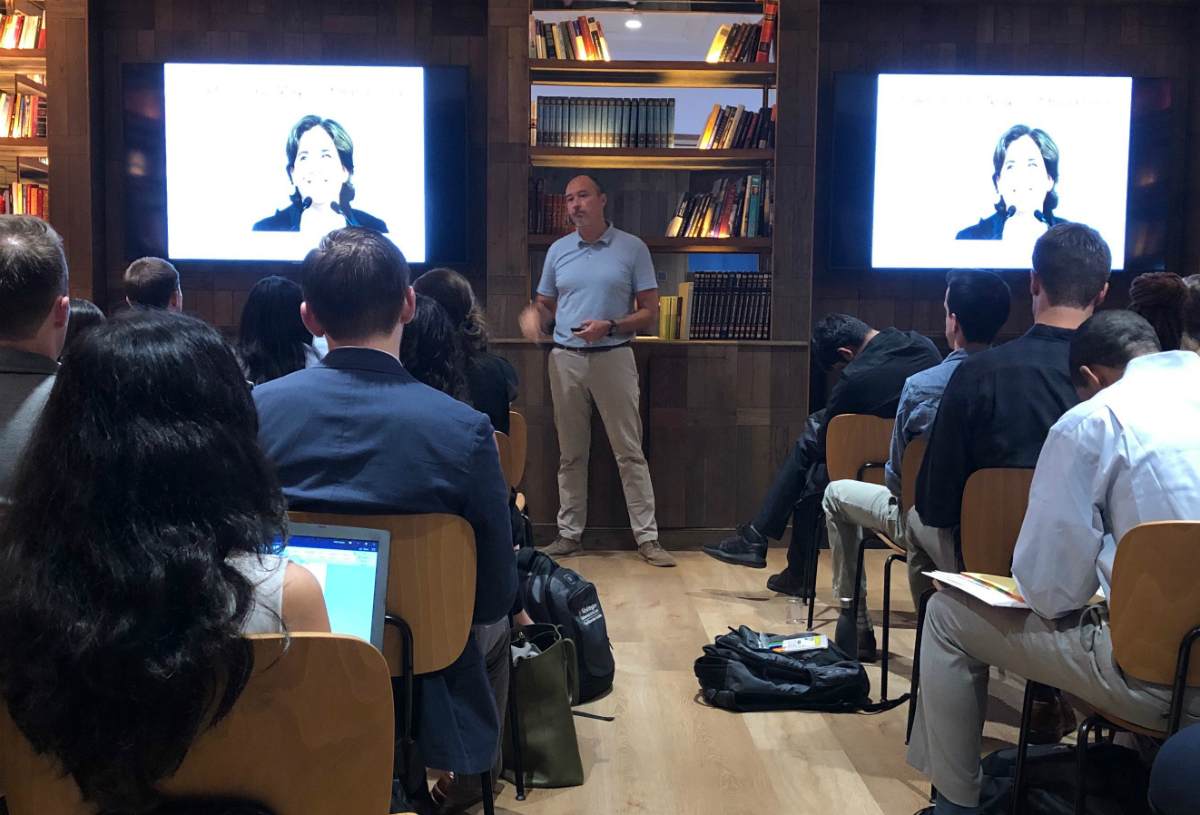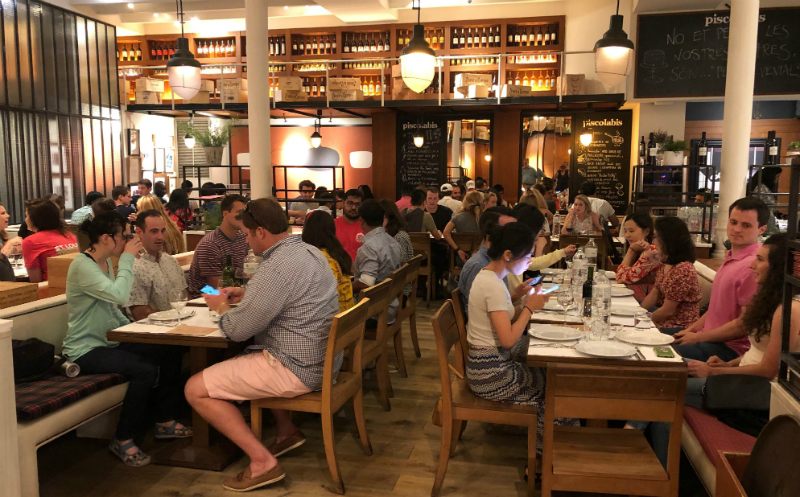Intro to Iberian culture and politics for Olin travelers—then ready for class
- July 17, 2019
- By WashU Olin Business School
- 2 minute read

MBA students started their second day in Barcelona taking a deep dive into the Spanish and Catalan cultures.
ESADE professor Alex Fernández de Castro presented a rich and nuanced view of Spanish governing and politics, with special attention paid to the current debate on Catalunya independence (note: Catalunya is the Catalan spelling; Catalonia the Spanish spelling). This part of his presentation focused on five key themes in current Spanish politics: unemployment, corruption, populism, poverty and Catalan nationalism.

Spain, a constitutional monarchy, has experienced much change recently. One major shift is its move from a two-party system to a five-party system, with the recent rise of centrist left and far right groups.
The new prime minister, Pedro Sánchez, assumed the post in 2018 to replace previous Marino Rajoy after a no confidence vote. Spain also has a new chief of state and king, King Felipe V, who succeed his much-beloved father King Juan Carlos I.
Professor Fernández de Castro also discussed the call for Catalan independence, a major issue; pressure in that direction has been increasing since 2012. After a controversial referendum that included voting irregularities, Catalunya declared independence.
The central government of Spain imposed direct rule in Catalunya, causing a constitutional crisis. The former president of the government of Catalunya, Carles Puigdemont, along with other Catalan leaders, fled to Brussels for fear of imprisonment.
Professor Fernández de Castro later switched gears to provide a history lesson on the 2,000-year-old city once called “Barkeno” by the Iberians and later “Barcino” by the Romans. In medieval times, the city was walled in, keeping its growth minimal. The walls stood for 500 years, finally falling in the mid-19th century, allowing Barcelona to grow and flourish.
He then pointed out must-see destinations in the city, including Gaudi’s Sagrada Família, the Catedral de la Santa Cruz, Museu Nacional d’Art de Catalunya, the Palau de la Música, the Plaza España and the Fundació Joan Miró.
After an afternoon on their own, the students came back together in the evening for a welcome dinner at a local tapas restaurant. The menu included many Catalan favorites—Iberian ham, fried calamari, paella, patatas bravas, pan con tomate and tortilla Española. Wine was consumed, toasts were made and friendships were deepened. In less than 12 hours, the students would be starting on their Introduction to General Management class.
Pictured at top: ESADE professor Alex Fernández del Castro introduces MBA students to the political landscape in Spain and Catalunya.
Media inquiries
For assistance with media inquiries and to find faculty experts, please contact Washington University Marketing & Communications.
Monday–Friday, 8:30 to 5 p.m.
Sara Savat
Senior News Director, Business and Social Sciences
